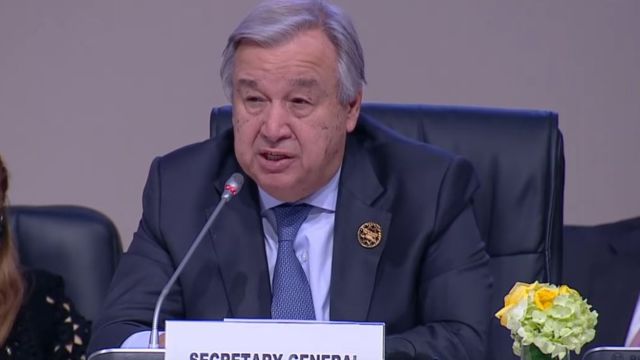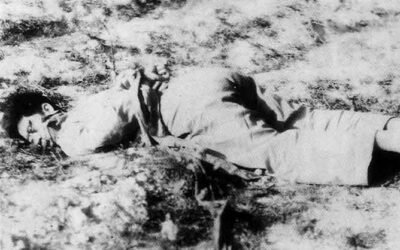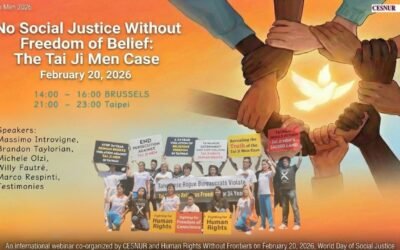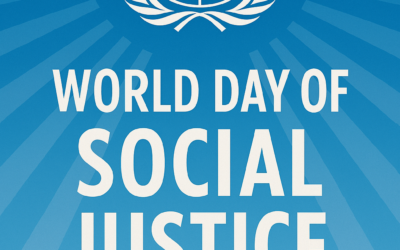Should the United Nations Two Covenants be merged into one? Taiwan may offer a unique contribution to this debate by solving the Tai Ji Men case.
by Marco Respinti*
*A paper prepared for the International Forum on World Citizenship Day, April 1, 2024, “Practicing Freedom of Religion and Human Dignity: The Human Rights Case of Tai Ji Men,” Taipei, Taiwan.

The 70th anniversary of the United Nations’ “Universal Declaration of Human Rights” in December 2018 was accompanied by an interesting discussion on whether two important documents of the UN, the International Covenant on Civil and Political Rights (ICCPR) and the International Covenant on Economic, Social and Cultural Rights (ICESCR), commonly referred to as the “Two Covenants”, should be now unified into a single document. The rationale is that the Cold War (1947‒1991), which caused them to be approved as separate documents in 1966, entering into force in 1976, while they had been drafted as one in 1954, is over. The 2018 UN mandate for simplification, ignited by a renovated aim at transparency and accountability, calls for an apt defragmentation.
In those times, Western democracies focused exclusively on civil and political rights, while the Communist world, made of the Soviet and Chinese blocs, emphasized only economic and social rights. There was shortsightedness on behalf of the West and hypocrisy on behalf of the East. The West took time to learn (and maybe hasn’t learned yet) that human beings cannot be sectioned into airtight compartments. The post-Cold-War era confirmed this principle, which became a source of embarrassment for Western pundits who had expected otherwise. Thinking that men and women could be satisfied with a partial product, i.e., civil and political rights, forgetting its source, i.e., overall personal liberty, is still causing political and social earthquakes. We do not know how to cope with them, if not by reconquering a unitary conception of the human being, which is a slow and difficult educational process.
On the other hand, the Communist claim that all problems are economic in nature is a classic example of a materialistic perspective that has wretched the world. And to see cultural rights enlisted in the camp of the Communist bloc is both ridiculous and tragic. Truly, in Marxism-Leninism cultural rights do not exist because culture does not exist. It is an alienation produced by another alienation, the human spirit. Its only possible meaning is the theoretical affirmation of materialistic rights.
A reconciliation of the “Two Covenants” is thus needed, rescuing the UN General Assembly’s original idea of December 10, 1948, when it adopted the “Universal Declaration of Human Rights”: human rights are universal, indivisible, and interdependent. This obvious, basic and at the same time grand, generous statement shows how the original intent of the UN was good—while its implementations have been poor.

That original intent stems in fact from a sound anthropology considering the human being as a unity. A human being cannot be parceled out to please ideologies, ideocracies, false anthropologies, and hunger for power. When this happens, the human being loses one of its key features only to lose, in the end, its humanity.
A litmus test for these principles is the Tai Ji Men case in the Republic of China (Taiwan), where East and West meet. As a democracy, Taiwan grants its citizens civil and political rights. It also incorporated the Two Covenants into its domestic law in 2009. No one would dare saying that civil and political rights as products of liberty must be granted to all Taiwanese citizens, while their roots can be curtailed. But this is what factually happens when some corrupt bureaucrats in some branches of the Taiwanese government deny the right to freedom of religion or belief to a group of law-abiding, tax-paying, patriotic, and pacific Taiwanese citizens called Tai Ji Men.
Clearly, the government of Taiwan allows Tai Ji Men dizi (disciples) their right to vote in the elections. However, since it doesn’t grant them the full enjoyment of their cultural and spiritual rights, it engages in a fragmentation of the human being that amounts to a tyrannical exercise of power.

The reconciliation of political rights and social and cultural rights for all world citizens and for all Taiwanese, starting from Tai Ji Men, is an urgency of the post-Cold War era. It means in fact to re-establish the fundamental unity of the human person. In Taiwan, this reconciliation would also serve as the basis for a correct understanding of transitional justice, which a truly democratic government should offer to all victims of past human rights abuses, irrespective of when they happened. By solving the Tai Ji Men case, Taiwan has the historical opportunity of setting a model and an example of the reconciliation between the Two Covenants scholars recognize as an urgent and global goal. This opportunity should not be missed.

Marco Respinti is an Italian professional journalist, member of the International Federation of Journalists (IFJ), author, translator, and lecturer. He has contributed and contributes to several journals and magazines both in print and online, both in Italy and abroad. Author of books and chapter in books, he has translated and/or edited works by, among others, Edmund Burke, Charles Dickens, T.S. Eliot, Russell Kirk, J.R.R. Tolkien, Régine Pernoud and Gustave Thibon. A Senior fellow at the Russell Kirk Center for Cultural Renewal (a non-partisan, non-profit U.S. educational organization based in Mecosta, Michigan), he is also a founding member as well as a member of the Advisory Council of the Center for European Renewal (a non-profit, non-partisan pan-European educational organization based in The Hague, The Netherlands). A member of the Advisory Council of the European Federation for Freedom of Belief, in December 2022, the Universal Peace Federation bestowed on him, among others, the title of Ambassador of Peace. From February 2018 to December 2022, he has been the Editor-in-Chief of International Family News. He serves as Director-in-Charge of the academic publication The Journal of CESNUR and Bitter Winter: A Magazine on Religious Liberty and Human Rights.



